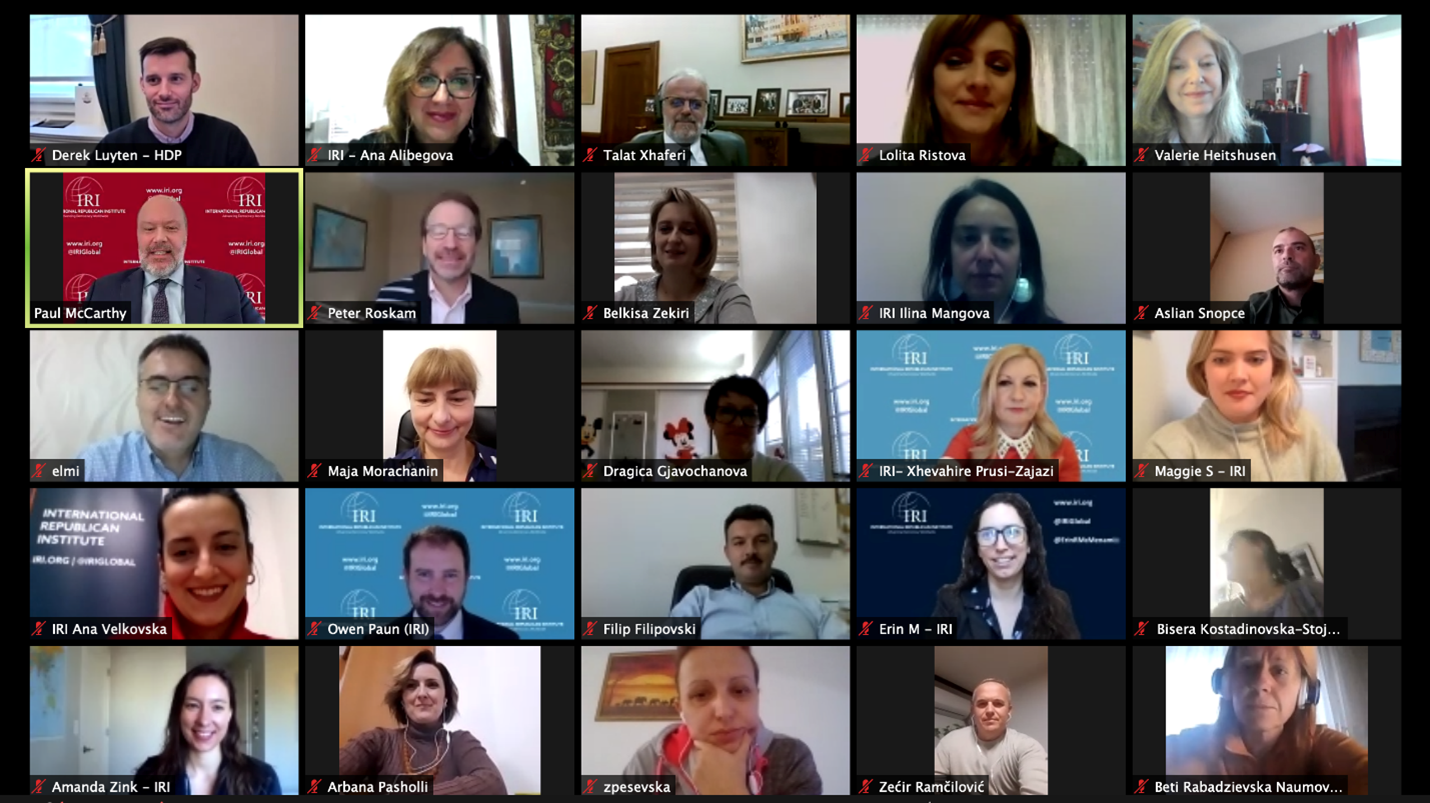Safeguarding Human Rights in North Macedonia Requires Immediate Action

Even in established democracies, the protection of human rights requires constant attention. In North Macedonia, where political institutions have at times failed to secure individual liberties, the government must keep a particularly close watch over its human rights record. To support in this endeavor, the International Republican Institute (IRI), through its House Democracy Partnership (HDP), has joined forces with North Macedonia’s Standing Inquiry Committee for Protection of Rights and Liberties of the Citizens. With the help of IRI, this parliamentary body is doubling down on its efforts to promote universal human dignity in North Macedonia.
According to Freedom House’s political rights and civil liberties index, North Macedonia ranks as a “partly free” country. Though the Constitution stipulates basic rights and freedoms, and the country has ratified most international human rights treaties, the enforcement of human rights needs continued strengthening.
On one hand, LGBTI rights have improved with the adoption of the new Law on Antidiscrimination, which for the first time gives protection to the LGBTI community. However, the mistreatment of detained and convicted persons, discrimination against people with disabilities and other marginalized groups, hate speech and gender-based violence remain some of the biggest challenges.
Take, for example, North Macedonia’s recent scandal with the online messaging platform Telegram. In a group called “Public Room,” more than 7,000 members engaged in the online sexual harassment of women and girls. Hamstrung, North Macedonia’s government lacked the legislation needed to prevent this harassment and the ability to react swiftly.
The purpose of the Standing Inquiry Committee is to improve the protection of human rights to avoid scandals like the one on Telegram. Its findings are meant to serve as the basis for investigations of possible human rights abuses. It should also oversee the general protection of individual liberties and provide opinions on rights-abuse complaints submitted by citizens.
The problem is that – for the past decade – the Committee has largely been defunct. During a period of acute political instability from 2014 to 2016, it did not even hold a single session, and it’s performance before and after this period wasn’t much better. Over a three year period, the Committee held only five sessions on the protection of human rights – nearly all of which were procedural and lacking in substance.
In the last few years, the Committee has begun to resume activity and held a few public hearings, but it wasn’t until 2020 – with the election of a new parliament – that an opportunity for real change emerged. Staffed with a new chair and a majority of first-time members of parliament (MPs), the Committee started fresh in August of 2020, and IRI was there to provide assistance.
In December 2020, HDP and IRI together hosted three tailored training sessions with members and deputy members of the Committee that proved to be essential. The training focused on how MPs can become more responsive to citizens’ complaints, react more promptly to human rights violations and improve cooperation with civil society. During the training, MPs had the opportunity to learn from the experiences of former U.S. congressmen and congressional staff, including Rep. Bob Goodlatte (VA) and Rep. Peter Roskam (IL). In these discussions, participants from both countries discussed how they have confronted the challenges inherent in standing committees and advanced the protection of human rights.
Ultimately, the series of trainings enhanced the capacity of Committee members and raised awareness of its importance across Parliament. Speaker of the Parliament Talat Xhaferi even reaffirmed the vital importance of IRI and HDP, saying, “We already have a new parliamentary composition, who need to get acquainted with the crucial role of the Committee in several areas of importance for the democratic growth and development of our country. The MPs, as direct representatives of the citizens from whom they received the trust, have a mandate that enables direct oversight and monitoring of the system of protection of human rights.”
The Parliament and Committee have three and a half years left in their mandate to prove the strength of their commitment to citizens’ rights and freedoms. By engaging in the HDP training and requesting IRI’s support on other committees, North Macedonia’s newest cohort of MPs are showing they are willing to govern in the public’s interest – but integrating lessons learned into their day to day work will be key.
Top